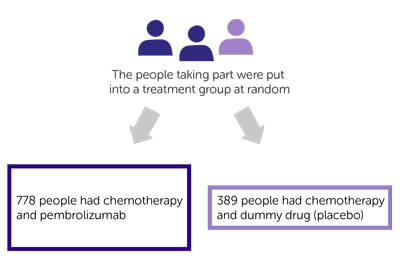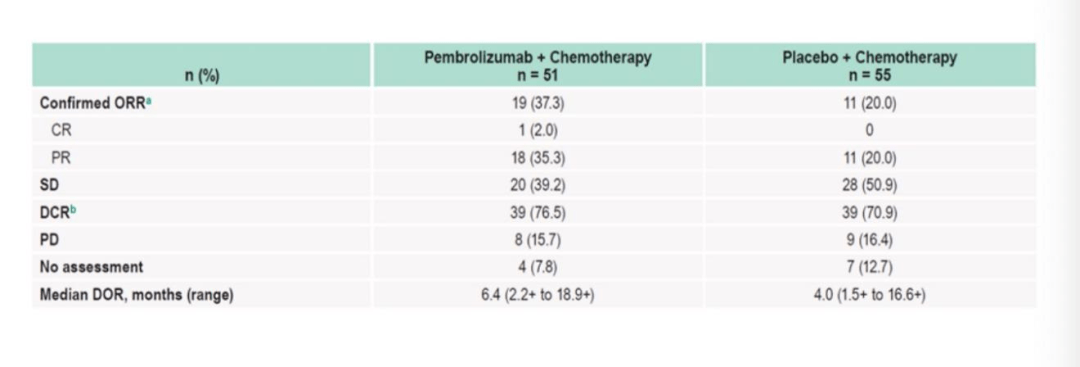

#KEYNOTE 590 TRIAL TRIAL#
4ĬheckMate 577 (NCT02743494) was a global, randomized, double-blind, placebo-controlled phase 3 trial that evaluated nivolumab vs placebo as an adjuvant treatment after neoadjuvant CRT and surgery for patients with esophageal or GEJ cancer with residual pathological disease.

2,3 Studies in murine models show that radiotherapy and chemotherapy can exert immunomodulatory effects, resulting in synergistic treatment responses when combined with immunotherapy. Neoadjuvant CRT followed by surgery is a widely used treatment strategy for patients with resectable esophageal or GEJ cancer. Defining the Role of Immunotherapy as Adjuvant Treatment of Gastroesophageal Cancers Therefore, it is crucial to understand and interpret the results from the landmark clinical trials in the context of recent FDA approvals. PD-L1 expression has been commonly used as a biomarker, and patients with higher PD-L1 expression seem to benefit more from checkpoint inhibitors. However, not all patients benefit similarly from using this class of agents. These immune checkpoint inhibitors have a manageable toxicity pro-file while significantly improving clinical outcomes in patients. Furthermore, pembrolizumab (Keytruda) and nivolumab were also approved for the frontline treatment of patients with met-astatic GEC. Nivolumab (Opdivo) was approved as the first adjuvant treatment in patients with completely resected esophageal/GEJ cancer following chemoradiation therapy (CRT) who had residual pathologic disease.

In 2021, several new FDA approvals involving the use of immune checkpoint inhibitors changed the treatment landscape in GEC. 1 On the other hand, more than 1 million new gastric cancer cases are detected annually worldwide, leading to an estimated 769,000 deaths. Globally, more than 600,000 new esophageal cancer cases are detected annually, claiming 544,000 lives. Gastroesophageal cancers (GEC), which consist of esophageal, gastroesophageal junction (GEJ), and gastric cancers, are the most prevalent gastrointestinal cancers worldwide.


 0 kommentar(er)
0 kommentar(er)
